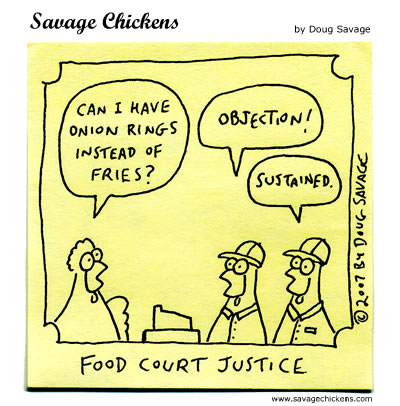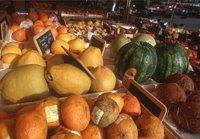Today I enjoyed a huge delicious Chipotle burrito, and as I was reading one of the cups with the little tidbits about Chipotle's view on food justice, I thought...why not research and write about it?

While googling the phrase "Chipotle Mexican Grill Food Justice" the first thing that came up was an article about a protest that occurred May of this year. (http://indymedia.us/en/2008/06/31733.shtml)This protest was protesting for better working conditions of farm-workers that provide Chipotle with some of their ingredients, in this case tomatoes.  They only ask that the company pays a penny more per pound of tomatoes that they buy, which according to the CIW(Coalition of Immokalee Workers), come from Immokalee, Florida. The thing is that McDonald's, as well as Burger King and Subway have followed through with the "one penny more".
They only ask that the company pays a penny more per pound of tomatoes that they buy, which according to the CIW(Coalition of Immokalee Workers), come from Immokalee, Florida. The thing is that McDonald's, as well as Burger King and Subway have followed through with the "one penny more".
One fact about Chipotle that I hear all the time is that they are affiliated with McDonald's. As of today that is not true because McDonald's "completed a tax-free swap of class B common stock in Chipotle Mexican Grill, Inc. (NYSE:CMG), for its own common stock."(Wiki)
This protest was protesting for better working conditions of farm-workers that provide Chipotle with some of their ingredients, in this case tomatoes. They only ask that the company pays a penny more per pound of tomatoes that they buy, which according to the CIW(Coalition of Immokalee Workers), come from Immokalee, Florida. The thing is that McDonald's, as well as Burger King and Subway have followed through with the "one penny more".
Just one penny more per pound!!

Did do "one penny more":



Did NOT do "one penny more":

One fact about Chipotle that I hear all the time is that they are affiliated with McDonald's. As of today that is not true because McDonald's "completed a tax-free swap of class B common stock in Chipotle Mexican Grill, Inc. (NYSE:CMG), for its own common stock." (http://en.wikipedia.org/wiki/Chipotle_Mexican_Grill) So because of that, McDonald's doesn't have any affiliation with Chipotle anymore, even though McDonald's is a company who followed suit with the "one penny more" while Chipotle doesn't comment on it.
The truth is that this is a blemish in Chipotle's philosophy of "Food with Integrity". They themselves are being hypocrites and have even been outdone by fast food companies like McDonald's and Burger King in this subject of tomatoes. The justice of how the food gets from being grown to our plate has been compromised in the name of Chipotle and I believe this post may shed some light on the true ethics Chipotle has.













